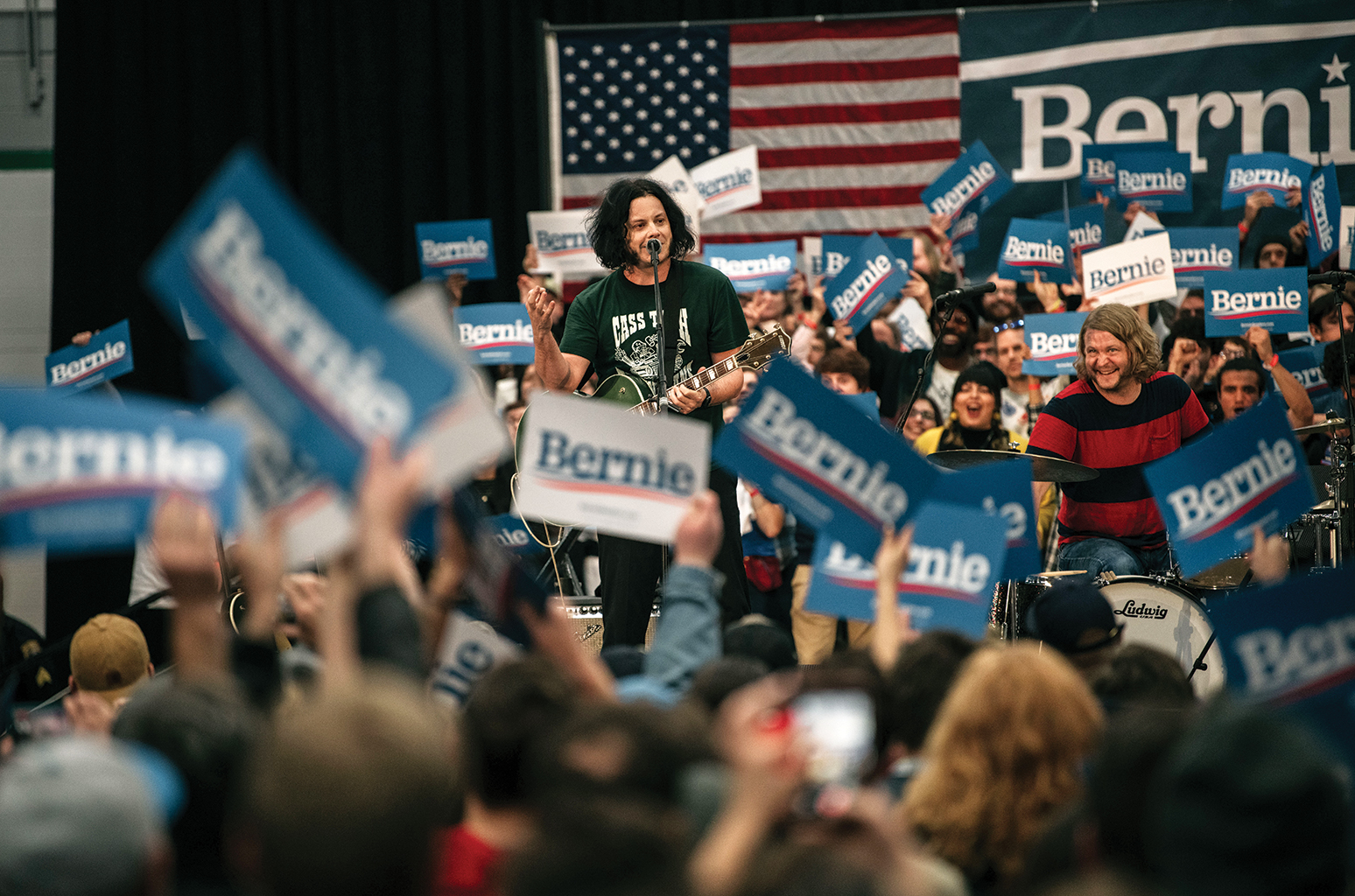Musicians are often among the most coveted celebrity endorsements when it comes to political races — but they’ve proved a mixed blessing.
In November, Andrew Yang sang along to Weezer frontman Rivers Cuomo's performance of "Say It Ain't So" at a campaign rally in Des Moines. Days earlier, Jack White screamed the ironic White Stripes "Icky Thump" line, "Why don't you kick yourself out, you're an immigrant too?" under a Bernie Sanders sign in Detroit. Ben Harper changed a line to "People Lead" to "when Pete takes the lead," endorsing Pete Buttigieg, who was then joined by Mandy Moore at an Iowa event Jan. 12. John Legend called Elizabeth Warren "the best candidate running today," and Melissa Etheridge says she "understands the LGBTQ community."
Every candidate in the Feb. 3 Iowa Democratic caucus knows pop stars have the ability to draw attention to their campaigns, even more than movie stars or other celebrities. Yang, who is such an outsider that he didn’t qualify for the latest debate, has smartly used artists like Cuomo and Childish Gambino for this purpose; Sanders is better known, but his progressive politics align more seamlessly with a variety of liberal artists from White to Cardi B. In this early part of the primary season, pop stars could be an X-factor to help candidates distinguish themselves.
Endorsements from musicians rarely push campaigns over the edge — even when they're prominent — yet candidates crave their support. "The group [of voters] that's really important is the group that doesn't pay a whole lot of attention to politics — and all of a sudden, Katy Perry, who they like, is paying attention to Hillary Clinton," says Joe Trippi, a Democratic strategist who worked on Howard Dean's 2004 campaign and is advising Sen. Doug Jones on his Alabama reelection. "You're getting people who don't tune in, necessarily, to political discourse, to start thinking about that candidate."
Of all the candidates, Sanders has by far the most musical endorsements, including Cardi B, Ariana Grande, Miley Cyrus and Brandi Carlile. "Pop, rock, hip-hop and R&B stars cast themselves as outliers and free thinkers and individualists who resist the status quo," says Columbia University journalism professor David Hajdu. "That's why someone like Bernie Sanders, an old white guy in his 70s, can stand up with any 20-year-old rock and pop star and they seem in sync. We think they're telling the same story and belong together."
For someone like Yang, the support could count for a lot. After his Weezer singalong drew thousands of Instagram likes, he raised $16.5 million in the last quarter. "He's in a great position to capitalize on endorsements by the most popular contemporary stars," Hajdu says, adding that his image of "not wearing the tie, and all the Silicon Valley rhetoric" appeals to younger, outside-the-establishment voters. "It would be hard to think of anyone who wouldn't help Andrew Yang — outside of Kid Rock and Tony Bennett."
Musicians can make a more emotional connection with voters than actors, athletes or other celebrities, but the risk is that candidates can look awkward if their images aren't perfectly in sync. "The memes and the images can last a long time," says Jason Johnson, an MSNBC contributor and author of Political Consultants and Campaigns: One Day to Sell. "The wrong look, a sideward glance, the image of Jay-Z looking vaguely bored when he's got his arm around Hillary Clinton's shoulder — those are things that don't necessarily help you and can be awkward."
The efforts also don't always work. Last fall, Taylor Swift announced support for U.S. Senate candidate Phil Bredesen in Tennessee, and helped register 169,000 new voters, most of whom were between 18 and 29. But her first-ever political push fell short, as Bredesen lost to Rep. Marsha Blackburn. In 2016, Clinton drew dozens of musical endorsements, from Demi Lovato to Snoop Dogg, but the election turned out to be about outsiders and rebels, including Sanders and Trump.
Trump's support from the music world, including Kid Rock, Ted Nugent and Kanye West, isn't as crucial to his 2020 campaign as it is for lesser-known Democrats: He's already a celebrity and doesn't need outside star power to draw attention. "Performers who are in sync with the kind of mid-America discontent and bubbling-up rage, a feeling of just being fed up with liberals and the way the turns of the country have taken — like Kid Rock — suit Trump," Hajdu says. Trippi adds that Trump plays well-known artists and songs at his rallies, even when Rihanna, Elton John, Prince, the Rolling Stones and numerous others have demanded that he stop, for one crucial reason. "Music drives everything," he says. "If it wasn't all that important, then why don't they just stop playing Prince? It matters."
This article originally appeared in the Jan. 25, 2020 issue of Billboard.


